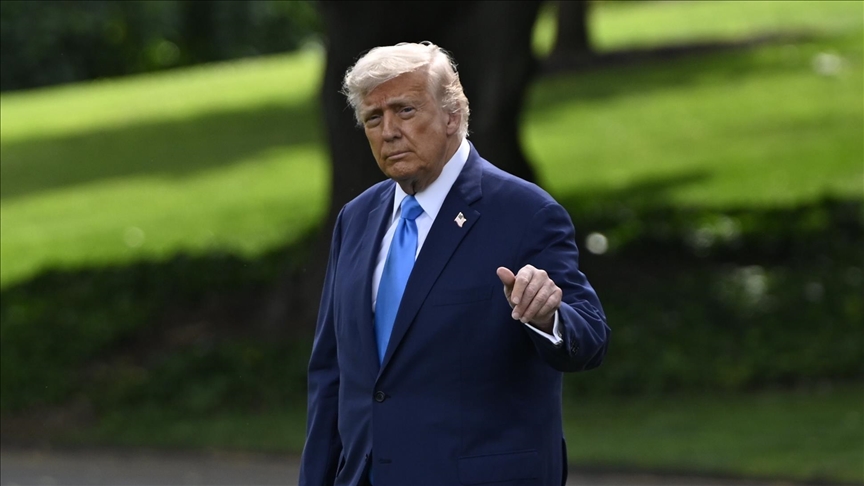Trump says he might 'go up' with 25% auto tariff to further protect US auto workers
'To further defend our auto workers, I imposed this 25% tariff on all foreign cars, and I might go up with that tariff in the not-too-distant future,' president says

ISTANBUL
US President Donald Trump said Thursday that he may increase his 25% tariff on imported cars in the "not-too-distant future" to further protect the country’s automotive workers.
"To further defend our auto workers, I imposed a 25% tariff on all foreign automobiles, and investments in American auto manufacturing are surging because of it," Trump said at the White House.
Stating that tariffs should be paid for cars that are not produced in the US, he said: "This could have been done by any of the presidents. I did it with China. The reason why you don't have Chinese cars here is because I imposed it (tariff) in my last term."
However, Trump said he loves China and respects President Xi Jinping a lot, adding they have made a deal with China that is good for both countries.
"To further defend our auto workers, I imposed this 25% tariff on all foreign cars, and I might go up with that tariff in the not-too-distant future," he noted.
"The higher you go, the more likely they are to build a plant here," Trump added.
His remarks were made during a White House event aimed at opposing a California state regulation that would phase out gas-powered cars and end the sale of new ones by 2035.
Trump boasted about forthcoming investments from Ford and General Motors, attributing those announcements to his tariffs. Nonetheless, international automakers such as Hyundai have cautioned that they might need to increase prices due to tariffs.
The president has enacted -- and retracted -- tariffs on different industries, including automobiles and steel and aluminum, while warning of further tariffs on pharmaceuticals and certain other imports.
He imposed a 10% blanket tariff on all imports, simultaneously announcing and then retracting increased tariff rates on several other countries








